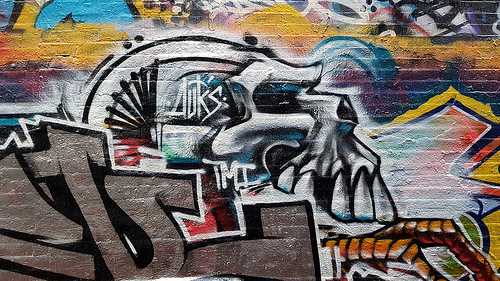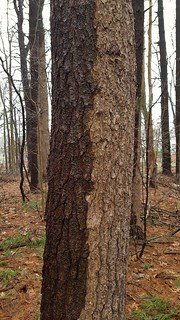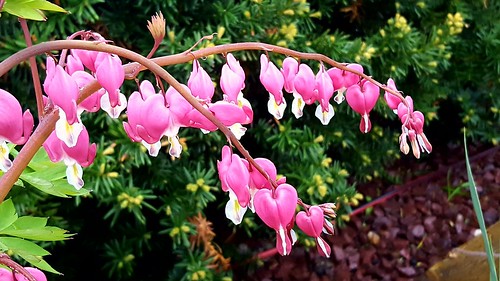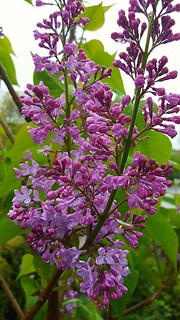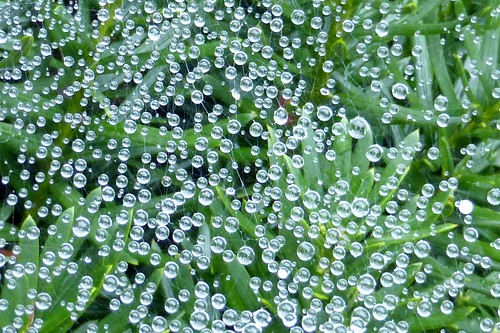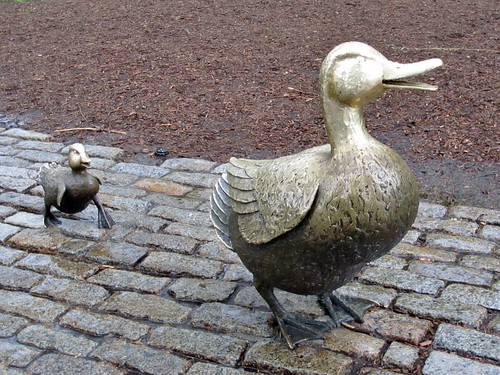
This morning, apropos of nothing, I remembered the Ray Bradbury short story about a robotic house that continues to function after its inhabitants have died in a nuclear blast, and the opening line from the Sara Teasdale poem that gives the story its title:
There will come soft rains and the smell of the ground…
My recollection of this story and these lines wasn’t entirely random, of course. It was raining softly this morning, and the air is rife with the smell of snow-melt and mud. Despite all the talk of April showers, I find March to be the rainier month: April rains are warm and full of promise, but March rains are cold and bleak, more akin to winter snows than summer storms. If you’re walking an old, slow dog, even a soft March rain will soak right through a raincoat or parka, chilling you to the bone. It’s easy to imagine the world is either beginning or ending on a cold, rainy March morning: an open case whose jury is still out.

This morning and on other dog-walks this week and weekend, my thoughts were with Japan. When you’re walking an old, slow dog on a cold, rainy day, it’s easy for your mind to wander, and as I felt the elements seep through my raincoat and clothes this morning, I kept wondering what it would be like to be homeless, traumatized, and disoriented on gray and drizzly day like this. The weather in Japan right now is like spring in New England: chilly with only an occasional promise of warmth. What would it be like, I wonder, to find yourself cast out in weather like this, the earth moving under your feet, the ocean rising up to swallow you, and the detritus of a power plant left in shambles threatening to irradiate you?
These past few nights, J and I have spent our evenings watching CNN even though their presumably “breaking news” only repeats the same videos and stories over and over, the same worries and questions still unanswered. Instead of looking to the familiar journalistic faces to give us answers, I’ve come to see this evening TV-time as a kind of meditation, the same pictures and videos repeating again and again like a kind of litany. No matter how many times I see the videos of waves swallowing cars and houses, I keep watching in disbelief; no matter how many times I hear the stories of people swept out of their loved ones’ grasps, I can’t help but be moved. No matter how many times we witness and hear these stories of catastrophe and disaster, they both shock and surprise, as if we didn’t actually believe that suffering, death, and impermanence truly exist in our sheltered lives.

Last night, there was a bit of truly breaking news while J and I were holding our nightly CNN vigil. At one point during his evening broadcast, Anderson Cooper announced with stunned amazement that the remaining workers at the damaged Fukushima Daiichi nuclear plant had been evacuated due to elevated radiation levels, a news flash that caused the nuclear scientist Cooper had been interviewing to nearly sputter with surprise. How could workers simply walk away from a malfunctioning nuclear plant, leaving it to deteriorate into total meltdown unattended? This morning, we learned that workers at the plant have returned, risking their own lives and health to avert the crisis, but that moment of sputtering disbelief still makes me think of Ray Bradbury’s eerie story. What would happen if humans were annihilated, leaving nothing but their computers, power plants, and other gadgets to continue chattering, whirring, and irradiating in their absence?

In that Ray Bradbury story, the futuristic house that continues cooking breakfast, washing dishes, and reciting poetry after its inhabitants have been vaporized, leaving nothing but silhouettes on a charred external wall, is ultimately destroyed by fire, the end of its world coming with a “great quantity of smoke.” Are we arrogant enough to believe our human inventions will continue to function without us, defying both entropy and inertia? In that Sara Teasdale poem, the speaker concludes that “Not one would mind, neither bird nor tree, / If mankind perished utterly.” This morning, walking in my own soft rains, I couldn’t decide which weather was better: rains that might cool a nuclear reactor left to its own devices, or gentle sun to shine on survivors with a mercy not shown by earth and sea.

